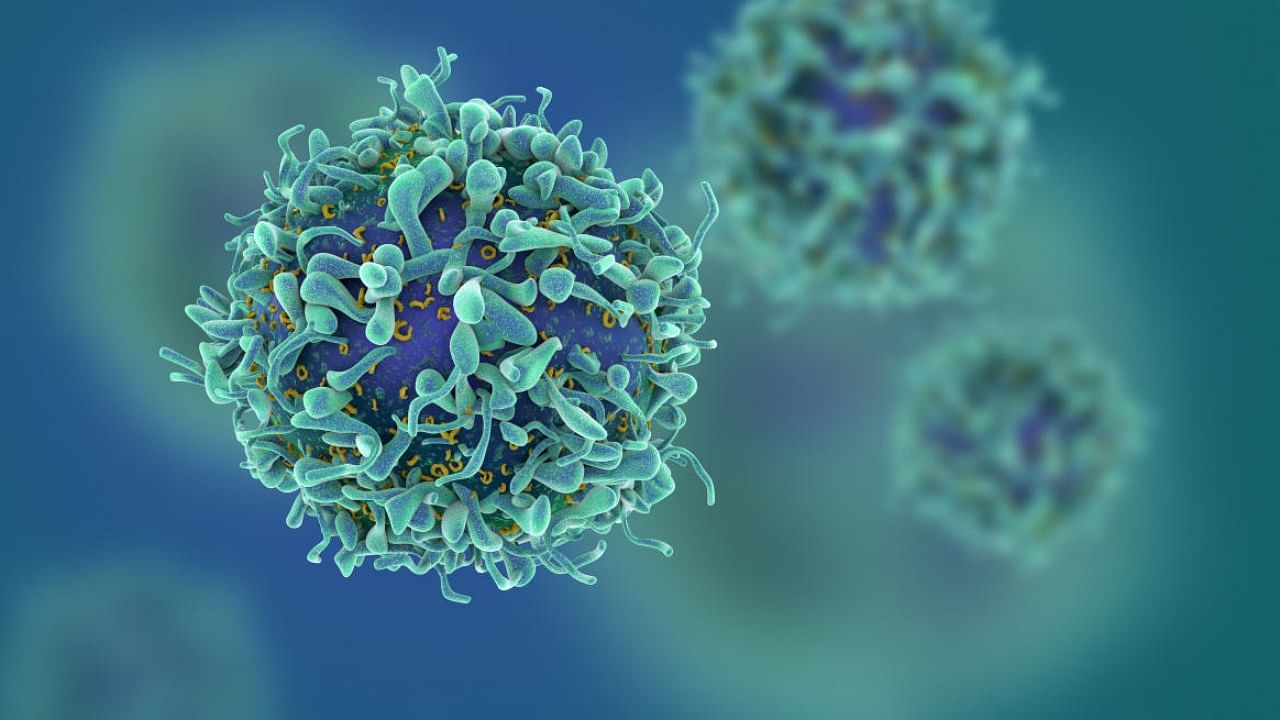
Omicron, the new variant of the SARS-CoV-2 virus, has taken the world by storm forcing countries to reimpose restrictions and lockdowns. The variant doesn't spare even vaccinated individuals or those who have contracted Covid before, bringing into conversation its mutations and the human body's response to it.
A new study suggests that T-cells in the human body target coronavirus and persist against it for a long period of time.
"Well-preserved T-cell immunity to Omicron is likely to contribute to protection from severe Covid-19," which supports what South African doctors had initially suspected when most patients with Omicron infections did not become seriously ill, research stated. Here's a look at what the study says.
How does the immune system work?
The immune system protects us from various infectious diseases, caused by bacteria, viruses, fungi or parasites. To do this, it first determines what type of infectious agent, or pathogen, is causing the infection following which it mounts an appropriate response. Crucially, at the same time, it produces memory cells that can recognise the same pathogen in the future. That sets the immune system up to fight potential reinfections.
What is the role of T-cells?
If the immune system determines that an antiviral response is needed, it launches a combination of two kinds of immunity. One is mediated by antibodies and the other is mediated by T-cells, or cell-mediated. The antibodies bind to viruses and neutralise them, preventing them from infecting cells. Meanwhile, T-cells kill cells that have already been infected by the virus.
While both kinds of immunity are important in fighting viruses, cell-mediated immunity is far more effective at eradicating viruses and more durable. This is important in the continuing fight against Covid-19.
What is the science supporting the role of T-cells against Covid-19?
Research has already established that cell-mediated immunity is a powerful weapon against human coronaviruses, the family including SARS-CoV-2. A 2016 study showed that T-cell immunity against the SARS-coronavirus persisted for up to 11 years. It provided complete, effective and lasting protection against SARS.
A Dutch study of 10 patients with severe Covid-19 found that upon admission to the intensive care unit, most of them already had T-cells that recognised and targeted the coronavirus. The findings may add to information about the role of T-cells in fighting the illness and help inform the development of vaccines that induce the body to produce these cells.
The study, led by Alessandro Sette at La Jolla Institute for Immunology in California and Rory de Vries at Erasmus MC in Rotterdam, found that patients' T-cell levels generally rose over time along with levels of antibodies that could neutralise the virus, while viral loads decreased. Furthermore, two uninfected volunteers also had T-cells that recognised the virus and responded to it in test tubes, adding to evidence that T-cells produced by the body in response to previous infections with common cold coronaviruses may also react to this new virus.
In another study, researchers in South Africa exposed copies of the virus to T-cells from volunteers who had received vaccines from Johnson & Johnson or Pfizer/BioNTech or who had not been vaccinated but had developed their own T-cells after infection with an earlier version of the coronavirus.
"Despite Omicron's extensive mutations and reduced susceptibility to neutralising antibodies, the majority of T-cell response, induced by vaccination or natural infection, cross-recognises the variant," researchers reported on Tuesday on medRxiv.
(With agency inputs)
Watch latest videos by DH here: